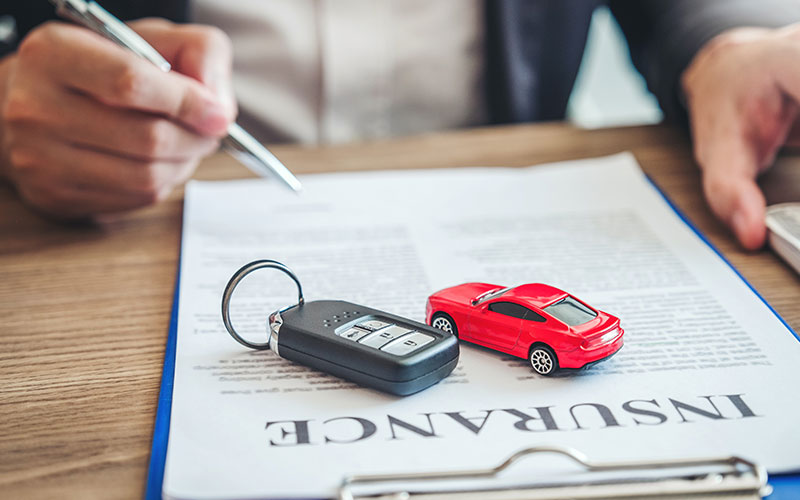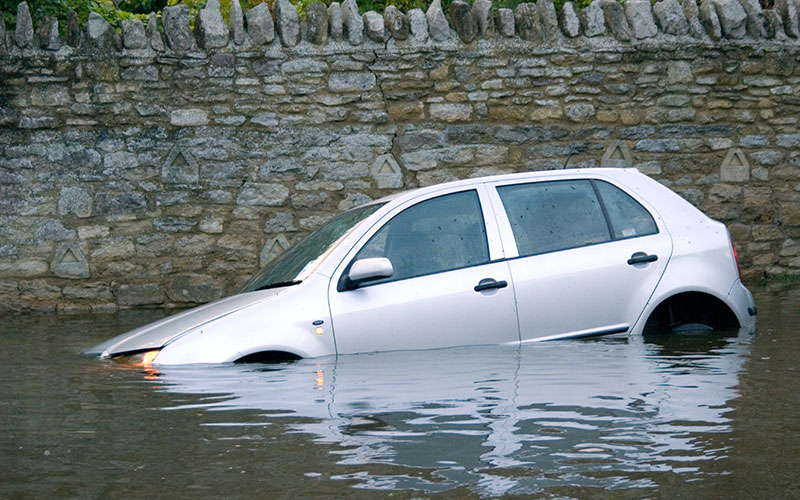In order to save money on a used car, a salvage titled car is an enticing option. But are they really a good deal or too good to be true?
Salvage Titles Explained

The used car market is in an odd place. Pandemic related disruptions to the global supply chain have led to a diminished supply of new cars which in turn has increased demand for used cars. As a result, prices are up, in some cases, way up. In your search for a used car deal you may run across a vehicle listed well below that of other comparable examples. Looking into the details you’ll often find that such cars carry a salvage or rebuilt title. So, what exactly is a salvage title? And, is it a dealbreaker or a chance to save big money?
A car will have a salvage title when it has been deemed a total loss (or “totaled”) by an insurance company following an accident or other significant damage to the vehicle. A salvage title will usually be issued once an insurance company has taken possession of such a vehicle and is trying to recoup some of the loss by reselling it for repair. In many states these new salvage or rebuilt titles will carry what’s call a “brand” that indicates what sort of damage the vehicle has sustained.
Common Brands

- Accident Damage – Depending on the severity of the crash and age of the vehicle, an accident can total a vehicle.
- Fire Damage – Fire damage is often pretty bad when it comes to salvage titled cars. From damage to the upholstery and carpeting and smoke damage to the same to burnt electrical and engine components, fire is usually going to signal the end of a car’s lifecycle.
- Flood Damage – Aside from major structural damage, a flood event is just about the worst thing that can happen to a car’s value. From electrical to upholstery, flood damage is awful for cars. A flood brand is often a death knell for a car and one with such a brand should be avoided.

- Hail Damage – Hail can severely damage a car’s value, especially older cars. However, since much of the damage is cosmetic, these can still be mechanically and structurally sound vehicles. Therefore, such cars can actually be a good deal provided you don’t care about all those dings and dents.
- Vandalism – This really depends on the nature of the damage to the vehicle. Some instances might leave a car largely intact mechanically, but fire damage, cracked frames, and other more major injuries to the vehicle could be bad news.
- Theft – Though stolen cars do get branded as such in many states, that doesn’t necessarily tell you a whole lot about the state of the vehicle. Some may have parts removed or damage due to accidents or carless driving while others remain perfectly sound. Recovered cars with a theft brand could represent an opportunity, but it’s necessary to have the car inspected.
What is a “Washed” Title?

One thing to watch out for with totaled vehicles is a “washed” title. That is a car that previously received a salvage title and/or a title brand in one state but is then shipped off to another state with different standards. Rules governing salvage titles and title brands vary from state to state. One car may carry a flood brand in one state but not in another. Some states don’t even have title brands at all. Title washing is one of the reasons it’s always a good idea to get a vehicle history report on any car you’re considering purchasing.
Why to Consider Salvage Titled Cars

The main attraction in purchasing a salvage titled car is the potential savings. Most cars will have undergone repairs, in some cases extensive rebuilds, that have restored most if not all of the vehicle’s original functionality. In the case of older cars, their value is already low in many cases so that even a fairly minor accident can leave it totaled. Such cars can potentially be a great value.
The Pitfalls of Salvage Title Cars

Unfortunately, this section will be more extensive than the one prior. That’s because there are numerous pitfalls that can make a salvage titled car a bad deal. Yes, you can save big money up front on a salvage titled car, but you may end up paying on the back end.
A salvage titled car will be harder to insure than a car with a clean title. With potential unaddressed structural or mechanical damage, many insurance companies won’t even insure a salvage titled vehicle. If they do, it will often be at a significantly higher premium. Similarly, getting financing for a salvage titled vehicle will be challenging. The decreased value of the asset means the bank or credit union would likely have difficulties reselling the vehicle in case of repossession. If you can get a loan for such a car, the interest rate is likely to be higher, too.

If you do purchase a salvage titled vehicle you may have a hard time getting rid of it. The reason you were able to save money in buying it is the same reason it will be hard to offload it when the time comes. Most franchise dealers won’t take a salvage titled car for trade-in at all and the same dent in price will apply in a private sale.
And finally, but perhaps most importantly, a salvage titled car can have unknown amounts of damage. Even with a given brand, many cars may appear sound at first glance only to prove severely compromised once you get it home. Flood damaged cars are particularly notorious in this regard.
How To Buy a Salvage Titled Car

This gets us to what you want to do if you’re interested in buying a salvage titled vehicle. All our general advice on buying a used car applies here, along with some additional stipulations and added emphasis. On your initial perusal of the vehicle look for the following:
- Signs of Repair – Check the panel gaps. If fitment is off this might indicate that those body panels have been replaced. Look under the fenders for too for signs of damage or repair.
- Smell Test – Flood and water damage will often lead to moldy or musty smells.
- Check the Vin Plate – If this isn’t intact it’s a red flag this could be a “washed” title car.
- Air-Bag Light – An active air-bag light could indicate that the vehicle has unrepaired accident damage or been in an accident where the airbags didn’t deploy.
- NTHSA Stickers – These are found on the doors, hood, and trunk or tailgate. If they are absent it could indicate that those parts have been replaced.

Next, you’ll want to get a full history on the vehicle. What damage did the vehicle incur that lead to its salvage status? If it was something fairly benign like hail damage, then it might actually be a good opportunity. If it was in a major accident and repaired that’s another story. In some cases, an accident will damage expensive mechanicals while leaving the overall structure sound. Conversely, even thoroughly repaired vehicles may have damaged frames or other compromised components that make them less safe. Lastly, as with any used vehicle, have a salvage titled car inspected by an independent mechanic. Let them know that the vehicle is a salvage title and any information you have about its history.
In the end, whether a salvage titled vehicle is a great deal or a potential financial albatross can only be determined on a case-by-case basis with due diligence on the part of the buyer. But in a hot used car market, the savings may be worth the extra work.









